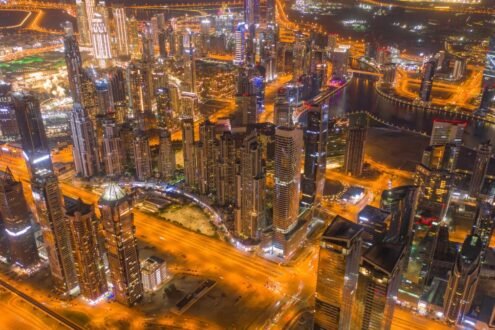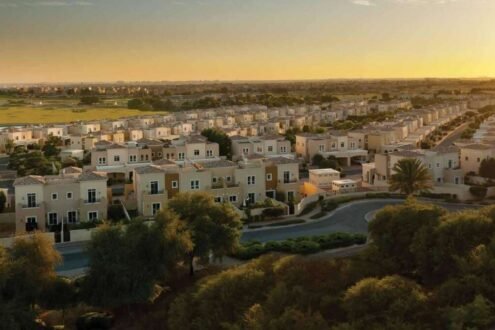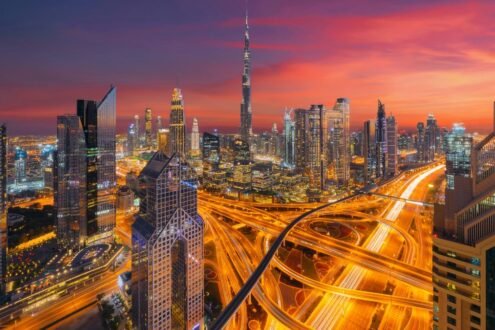
High-net-worth individuals are drawn to the city’s world-class infrastructure, strategic geographic location, and innovative developments
Dubai’s real estate market has experienced three growth cycles thus far, with two boom-bust cycles occurring—first during the 2008 global financial crisis when the market crashed for the first time, and again during the Covid-19 pandemic.
After a three-and-a-half-year rally, industry experts are optimistic that the market will now experience slower and steadier growth, supported by an increase in end-users and serious investors who are actively participating in the local market.
As the third growth cycle concludes, experts are confident that another boom-bust scenario will not occur, largely due to significant initiatives such as the Escrow account system and the influx of high-net-worth individuals and end-users, which have contributed to market stability.
Industry insiders assert that the property market has transcended its boom-bust cycles and evolved into a more mature and regulated sector.
“Dubai’s real estate market has undergone significant transformation over the years, moving away from the boom-bust cycles of the past towards a more stable and sustainable growth trajectory. This transformation is driven by various factors, including the implementation of rigorous regulatory frameworks, increased transparency, and a strategic focus on long-term economic diversification,” stated Hassan Hijazi, group CFO of Amwaj Development.

Hassan Hijazi emphasized that Dubai’s appeal to a diverse range of investors has expanded. He noted that high-net-worth individuals, institutional investors, and expatriates are attracted to the city’s world-class infrastructure, strategic geographic location, and innovative developments.
“The legacy of Expo 2020 and various government initiatives, such as the Golden Visa program, have been crucial in attracting and retaining investors, solidifying Dubai’s status as a global investment hub,” Hijazi highlighted.
Imran Farooq, CEO of Samana Developers, argued that Dubai’s economic infrastructure and multicultural society have been developed so robustly over the last five decades that describing the city’s growth as “artificial or a balloon” would be inaccurate.
“The city stands firmly on its foundations. Dubai has showcased its capabilities to the world through successfully hosting global events like Dubai Expo 2020, UAE COP28, and effectively managing the Covid-19 pandemic. It’s evident that Dubai’s real estate sector has matured significantly and moved beyond the boom-and-bust cycle,” Farooq asserted.

Yogesh Bulchandani, founder and CEO of Sunrise Capital, pointed out that those familiar with the real estate sector’s fluctuations can see Dubai’s market has displayed remarkable resilience, defying expectations of a slowdown.
“While global property markets face challenges, Dubai continues to see rising prices, marking a departure from traditional boom-and-bust cycles. The market’s robustness is supported by buyers purchasing properties for their own use, indicating Dubai’s previous transient reputation is diminishing. There remains strong demand from Europe (including the UK), India, and South Asia, with an influx of affluent investors and foreign buyers contributing to a more stable and mature real estate environment in Dubai,” he emphasized.

Yogesh Bulchandani, founder and CEO of Sunrise Capital, expressed confidence that Dubai property prices will remain stable over the next five years due to their attractive returns for investors.
“We’ve observed an increase in investors from Europe, CIS, and China. All segments of the market are highly sought after. Higher prices make Dubai appealing to foreign institutional investors, further bolstering the city’s real estate sector and benefiting all stakeholders,” he remarked.
Regarding market corrections, Bulchandani noted that while Dubai’s relatively lower property prices compared to cities like Hong Kong, Singapore, and New York attract investors, they do not guarantee immunity from fluctuations.
“The ongoing trend of sustained price increases may indicate market maturity, but global economic connections and investor behavior still present risks of cyclical trends,” he cautioned.
Meanwhile, Hassan Hijazi highlighted that Dubai’s lower property prices compared to major global cities provide a buffer against significant market corrections.
“This affordability, combined with ongoing development, safety, quality of life, and proactive government measures, makes Dubai’s property market appealing to a broad range of investors and residents. Additionally, government actions to regulate supply and demand dynamics ensure market stability. While some price adjustments are natural in any real estate cycle, Dubai’s property market’s inherent value proposition positions it well to avoid major corrections, maintaining investor confidence and market resilience,” said Hijazi.






